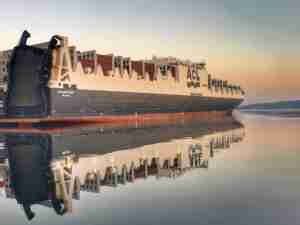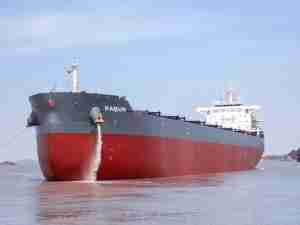With the introduction of a 400,000 deadweight tonne dry bulk freighter last month, Brazilian mining giant Vale has broken a 25 year-old record in operating the world's biggest bulk carrier.
"Valemax is the first one and we will keep building as much as necessary," Vale's global marketing director Pedro Gutemberg said, adding that that these maxi-sized ships will cut its freight costs by 20-25 percent.
While the average market cost to transport each tonne of iron ore in capesize vessels from Brazil to China is currently at about $21-22, with the new Valemax vessel costs will drop to $17-18 per ton.
Vale has invested heavily in shipbuilding to drive down freight costs from Brazil, where most of its iron ore is produced, to China, the world largest importer of iron ore, a key steelmaking ingredient.
A few ports in China are already ready to accommodate the maxi vessel, Gutemberg said.
Vale currently calculates its freight costs based on a 10-year average operating cost plus a good return on the capital investment for a basket of vessels including capesizes and the new mega-sized vessels, Gutemberg added.
"We are working very hard on our shipping strategy, which was one of the weakest parts of our value chain," he said.
"Today we have got the best possible (market) situation with high iron ore prices and low freight rates but we want to be ready for when the market turns."
A supply deficit has lifted iron ore prices in the past year. Spot iron ore hit a record high at $193 a tonne for 62 percent iron content material on a cost-and-freight China basis in February, according to the Platts iron ore index. It was at $175 a ton, on the same basis.
The outlook for dry bulk rates however, has been grim because ship supply has outpaced demand to ship commodities.
The situation has been compounded by the entry into the fleet of Vale's mega vessel.
Analysts say that over 100 vessels with more than 230,000 dwt are scheduled for delivery between 2011 and 2014, representing more than 10 percent of the total dry bulk orders in tonnage terms, and that these huge ships will help keep freight rates low.
Average capesize earnings have fallen to below $5,000 a day this year, below operating costs estimated at $7,500 to $8,000 a day, compared with over $200,000 a day before the financial crisis in 2008. (Reuters)









